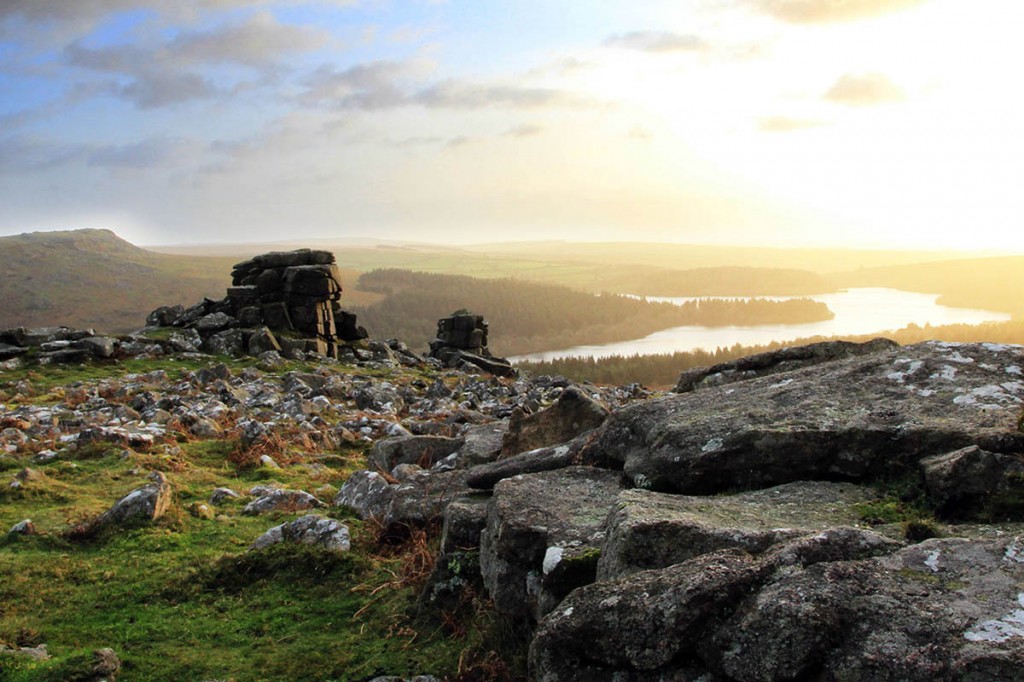National park bosses in Dartmoor said they will fight a bid to overturn a legal ruling that restored camping rights in the area.
Dartmoor National Park Authority has been notified that an appeal against the judgment has been lodged with the Supreme Court.
In January Sir Julian Flaux, Chancellor of the High Court, upheld Alexander Darwall and his wife Diana’s contention that the legal definition of open-air recreation did not include camping.
The hedge-fund manager, who has owned the Blachford Estate and Stall Moor, north of Ivybridge, since 2013, argued that the Dartmoor Commons Act 1985 did not give the public the right to camp without the landowner’s permission.
The authority brought a case to the Appeal Court, which ruled that the act did permit backpack camping on some of Dartmoor’s commons without the permission of the landowner.
The authority said it was notified on 25 August that an application seeking to appeal the judgment had been lodged with the Supreme Court. The authority had 14 days to respond and the matter was urgently brought before members at their scheduled meeting today.
Members agreed to object to the application and, should the Supreme Court grant permission for a hearing, that the authority is represented to argue its case.
Speaking after the meeting, Dartmoor National Park Authority’s chief executive and national park officer Dr Kevin Bishop said: “We respect the right of Mr and Mrs Darwall to seek permission to appeal to the Supreme Court but are disappointed that the unanimous decision of the Court of Appeal might not be the end of the legal process.
“The authority is clear about its role to protect opportunities for people to enjoy the National Park responsibly and in ways that are respectful of its environment and the people who live and work here.”
The continuing case hinges on the legal meaning of words in the act, specifically whether backpack camping on certain areas of common land counts as a form of open-air recreation and can be done without needing landowner permission first.
The authority said it has sought to defend the public’s right to access the national park for open air recreation ever since the case was brought before the courts, first at the High Court and then the Court of Appeal.
The Supreme Court of the United Kingdom is the final court of appeal in the UK for civil cases, and for criminal cases from England, Wales, and Northern Ireland.
An authority spokesperson said: “Donations of time and money are essential for us to be able to look after the heritage and wildlife of Dartmoor and to make it a place for everyone to enjoy today, tomorrow and for the future.”

Sam Smith
03 September 2023I noticed that the term "backpacking" is used in this latest article. I am in my eighties looking back in time when, with my wife and our two daughters enjoyed the countryside by "living" in it by walking and backpacking. Note! that I do not use the word "wild camping", that in very recent years has been used for this activity.
Backpacking is the activity of walking and staying overnight in a location and moving on next day in such a way that no one, after the grass regained it's upright position would be able to find any evidence that anyone had been there.
Wild camping is the activity of people who stop overnight in a location showing complete disregard for the location and complete disrespect for to the people who follow in their footsteps and lack of interest and care for our countryside.
Mike W
04 September 2023I can't help but think this latest challenge going to backfire regardless of the outcome (more than it has already). Too late now, but a more amicable approach and resolution would have been so much better for all (and cost a lot less).
[Sam - I agree with your sentiment but don't tar all 'wild campers' with the same brush. I only ever wild camp solo, completely respect the location and pride myself on leaving no trace (and follow many other of our unwritten 'rules'). There are many who don't, but it's not all by far.]
Ian512
10 September 2023In the last few years, the concept of 'Wild Camping' (the term probably introduced through the Scottish Access Regulations) has been interpretated as, primarily, 'Car Based Camping', which is causing numerous problems in rural areas.
Those problems are not caused by the people who have regularly, over decades, camped in remote mountain areas.
Doddy6
23 October 2023+1 for what Mike W says.